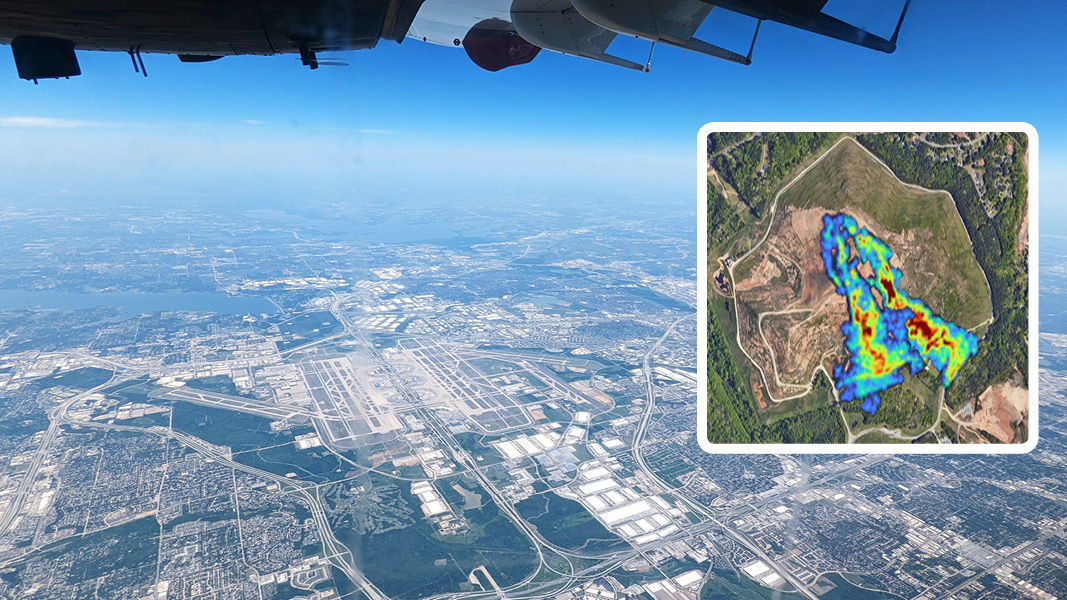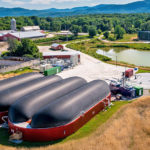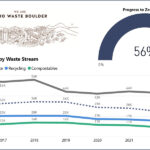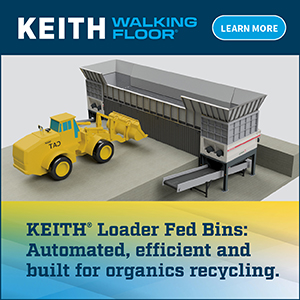Top: An aerial image taken during a Carbon Mapper survey of U.S. landfills in partnership with Arizona State University Center for Global Discovery and Conservation Science. Methane plumes observed by Carbon Mapper during aerial surveys at a landfill in Georgia (inset). Images courtesy Arizona State University Global Airborne Observatory and Carbon Mapper
A new study published in Science by Carbon Mapper, the U.S. EPA, the NASA Jet Propulsion Laboratory and others adds to the growing evidence of the outsized climate impact of point sources in the waste sector. Landfills emit high volumes of methane — many over months to years — and were responsible for 14.3% of methane emissions in the U.S. in 2021, according to EPA. The recently completed study is the largest measurement-based landfill methane assessment to date that identifies major emission sources missing from traditional model-based accounting that can be prioritized for immediate action. Sustained direct measurement tools use emerging surface-, air-, and space-based monitoring technologies.
Key findings include:
- High emissions point sources are more prevalent in landfills versus oil and gas infrastructure. Of the landfills surveyed, 52% had observable point source emissions. This far exceeds the 0.2% to 1% detection rate observed for super-emitters from surveyed oil and gas infrastructure in California and the Permian Basin.
- Landfill emissions are generally more persistent compared to oil and gas production. Out of the surveyed landfills with observed emissions, 60% had emissions that persisted over months or years.
- There is a big difference between observed and reported emissions. On average, aerial emission rates were an average of 1.4 times higher than the EPA’s Greenhouse Gas Reporting Program.
The data in the study reinforces the critical need for a comprehensive monitoring strategy to measure, quantify, and act on methane emissions at landfills more effectively as a critical means to address climate change. Dramatically increasing edible food recovery, and composting and anaerobic digestion of food waste, are also very effective tools for landfill methane avoidance.
Carbon Mapper’s methane data is publicly available on its portal.













